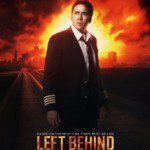 The Equalizer isn’t exactly a family friendly, faith-centric movie. Denzel Washington, who plays protagonist Robert McCall, kills more people than die in the first three Jaws movies—and more horribly at that.
The Equalizer isn’t exactly a family friendly, faith-centric movie. Denzel Washington, who plays protagonist Robert McCall, kills more people than die in the first three Jaws movies—and more horribly at that.
But Washington’s also one of the film industry’s most prominent Christians who, despite often playing violent characters, tries to weave his faith into the projects he does and the characters he plays. The Book of Eli, which was, quite literally, a Bible story, is just the most obvious. Here’s what he told Christianity Today back in 2010:
“I’ve tried to bend my roles, even the worst of roles like Training Day. The first thing I wrote on my script was ‘the wages of sin is death.’ In the original script, you found out that [my character] died on television. And I said, ‘No, no. In order for me to justify him living in the worst way, he has to die in the worst way.’ I had Ethan [Hawke] pull me out of the car, and I crawled like a snake. The whole neighborhood turns their back on me, and then I get blown to bits.”
So what verse might he have written on his script for The Equalizer? Perhaps something like Romans 13:4: “For he is God’s servant for your good. But if you do wrong, be afraid, for he does not bear the sword in vain. For he is the servant of God, an avenger who carries out God’s wrath on the wrongdoer.”
Washington’s Robert McCall does not carry his sword in vain. Sinners here do indeed find the wages of sin is indeed death. But throughout the film, Robert McCall allows a measure of mercy to enter into the proceedings. He almost always seems to give these wrongdoers a chance to repent.
The movie just came out today, so I’m not going to go in great detail here. But let me give you an early example.
Robert befriends a young prostitute who calls herself Teri (Chloë Grace Moretz), who runs afoul of her Russian pimp, Slavi. Robert decides to save her—but hopes to buy her freedom. He plops down nearly $10,000 of his own cash to save the girl from sin and her sinful captors; a ransom, if you will. Robert almost begs them to take the money, to do the right thing for maybe the first time in a long time.
They do not. And when the scene is finished, Robert simply says, “I’m sorry.”
You won’t find a lot of redemption in The Equalizer. But there’s always the possibility of redemption. Robert gives his enemies a choice to turn from their wicked ways or go along the way we have.













